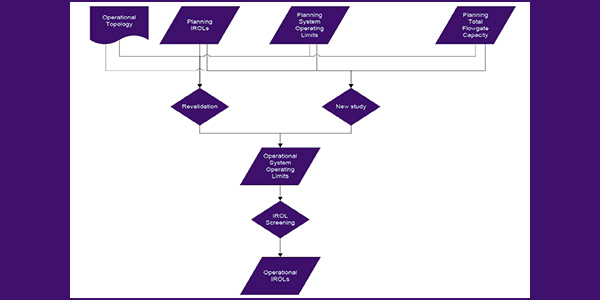By Rich Heidorn Jr.
A NERC panel considering a proposal to limit reporting on system operating limit (SOL) exceedances will be seeking data to support its claims that excessive compliance requirements are a reliability threat.
Members of the standards development team (SDT) for Project 2015-09 (Establish and Communicate System Operating Limits) will be gathering the data in response to concerns by FERC staff over a proposal that would require logging, communication and documentation only when SOL exceedances last for 30 minutes or longer.
The proposal, which came in response to comments by the Midwest Reliability Organization, has received “a lot of positive feedback from industry,” SDT Chair Vic Howell, of Peak Reliability, told stakeholders Wednesday. Current NERC standards do not clearly define what is an SOL exceedance or when it must be reported, he said.
Howell provided a briefing on a May 2 conference call that he and several other SDT members had with FERC staff on the proposal.
“It wasn’t very clear [to FERC] that this was a reliability issue as much as it was a compliance issue. … We tried to explain that it is a reliability issue because if operators are so busy doing all this documentation for compliance evidence, it takes their eye off the ball for performing actual operations and addressing actual SOL exceedances,” Howell said. “We got to a place where FERC staff understood our concerns and … they wanted us to come up with data to back up our concerns.”

System operating limits development in the operations horizon | SPP
Following the FERC call, Stephen Solis of ERCOT compiled preliminary statistics to facilitate discussions of what the actual data request could look like. The preliminary data showed that in January, about 2% of the Texas grid operator’s five-minute exceedances of pre- and post-contingency thermal or voltage limits lasted longer than 30 minutes. He acknowledged that ERCOT’s data includes 69-kV lines that are below NERC’s Bulk Electric System threshold and a number of non-exceedances that show up as the values approach close to an exceedance.
Reporting only the exceedances of more than 30 minutes would require almost 40 communications a day, Solis said. “The rest of it is just normal everyday seeing things, responding; seeing things, responding; repositioning the system very quickly.”
Solis said if ERCOT had to report each of the nearly 76,000 five-minute exceedances for the month, “we’d have to hire two or three people just to get on the phone and call people.”
“It’s not realistic and that would be a detriment to reliability,” he continued. “Of every 50 violations, one will make it greater than 30 minutes. We’re doing a very good job of catching things, fixing things. If you’re going to penalize companies for doing a good job, there’s something broken there.”
Howell said the team will seek data from MRO and others outside the SDT but that it would not be an industry-wide effort. “Whoever we can get to give us the data and do the data analysis so that we have a good representation and a reasonable pool, then we’ll go with that,” he said.
FERC staffer Eugene Blick, who participated in the Wednesday SDT meeting, suggested the team obtain data from “multiple [reliability coordinators], because keep in mind, what you’re proposing to change is in a continent-wide standard applicable to all RCs and all [transmission operators].”
Blick said one other entity that commission staff have spoken to didn’t see the issue as a problem. “They didn’t have many SOL exceedances during their operating day because their [operational planning analysis] served as a means to filter or mitigate some of the SOL exceedances.”
He said seeming exceedances that result from telemetry or modeling problems should be excluded in the data collection.
Howell said the team will spend the next couple weeks refining its data request before seeking contributions.




